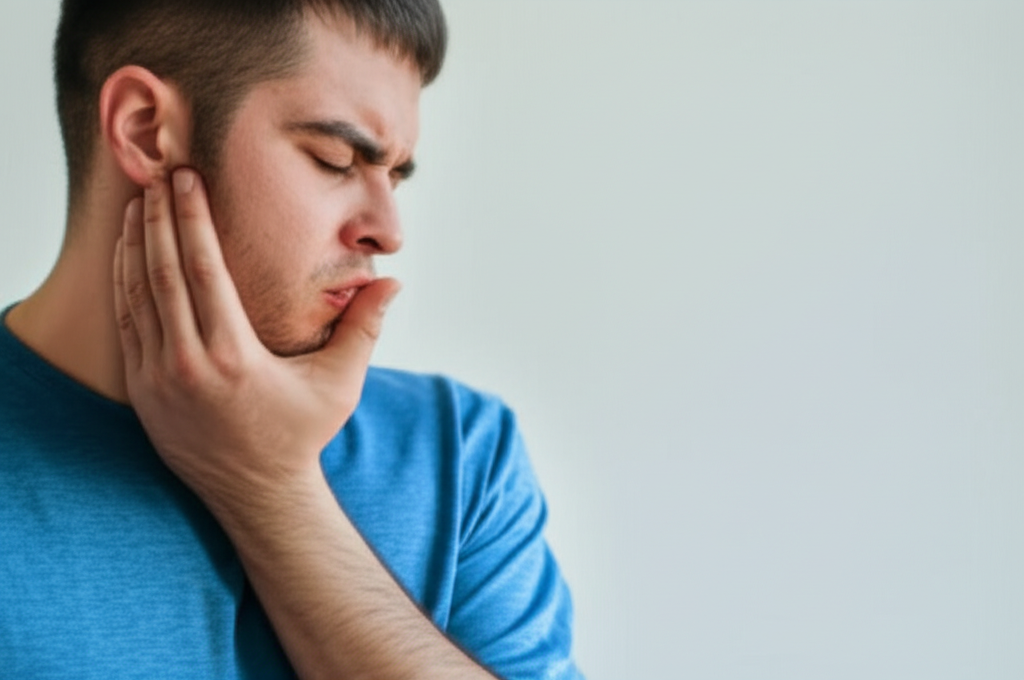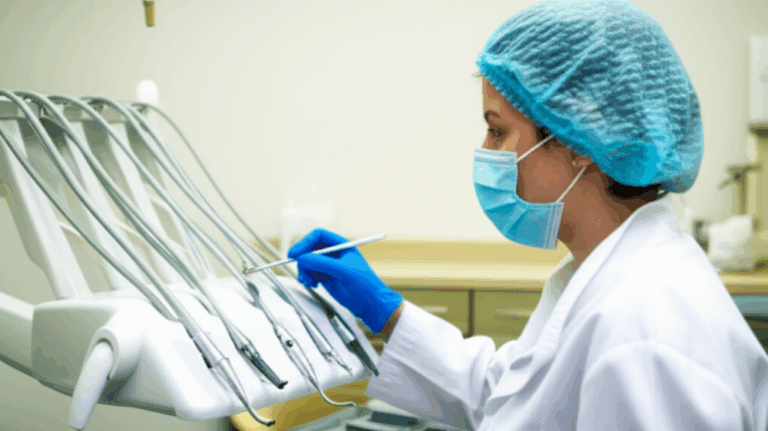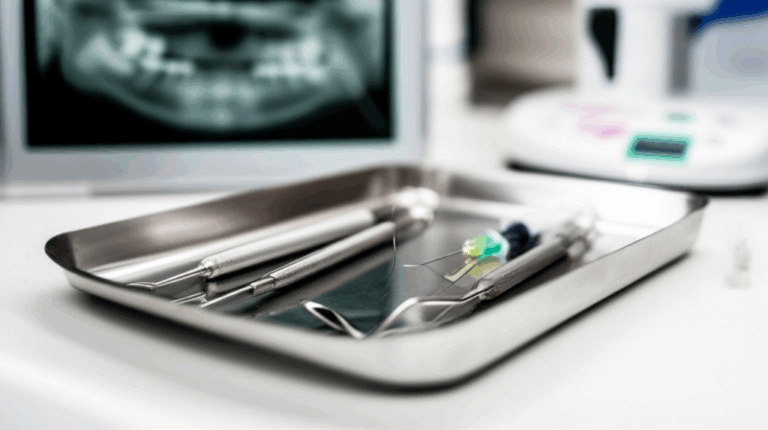
Can Dental Problems Cause Weight Loss? Understanding the Link and Finding Solutions
That sudden drop in your weight has you scratching your head. You haven’t changed how you eat. You’re not working out more. There’s no new diet—but the numbers on the scale keep dropping. Let’s be honest: losing weight for no reason can feel scary. But here’s a question people often miss—could problems in your mouth be messing with your appetite and the way you eat?
If this sounds like you, you’re not alone. Many people don’t connect their teeth and gums with the rest of their health, especially not their weight. But the truth is, there’s a strong link between problems in your mouth and unplanned weight loss. Let’s go through it together, step by step, so you can see what’s really going on—and what to do about it.
Table of Contents
- The Surprising Connection Between Oral Health and Weight Loss
- How Dental Problems Lead to Weight Loss: The Reasons
- Common Dental Problems That Can Cause Weight Loss
- Recognizing the Signs: When Dental Problems Cause Weight Loss
- What You Can Do: Solutions and Help
- Prevention: How to Keep Your Mouth (And Weight) Healthy
- Your Healthy Takeaway
The Surprising Connection Between Oral Health and Weight Loss
“Can dental problems really make me lose weight?”
Yes, they can. Problems with your teeth or gums can cause pain, make it hard to chew, cause infections, and kill your hunger—all of which can lead to unsafe weight loss. If you’re missing teeth, have bad cavities, or have sore gums, your mouth could be the reason those numbers on the scale are dropping.
If eating hurts, food tastes strange, or chewing is just too difficult, that’s not just annoying. Over time, it can hurt your nutrition, energy, and health. Sometimes, what happens in your mouth can cause bigger changes in your body than you might think.
Before you start worrying about every other possible reason, let’s see why mouth problems could be the sneaky cause.
How Dental Problems Lead to Weight Loss: The Reasons
Think of your teeth and gums as the doorway to everything you eat. If there’s trouble at the door—pain, lost teeth, swelling, or sores—you can end up eating less or choosing different foods. But why does this happen? Here’s a simple look at what’s going on.
A. Chewing and Eating Get Hard
Most of us chew without even thinking—until it starts to hurt. Have you ever tried eating with a sore tooth? It’s like dancing with a twisted ankle. Suddenly, crunchy veggies, chewy meat, even your favorite snacks become things to avoid.
- Causes include: big cavities, infections, broken teeth, jaw pain, or missing teeth and old dentures.
- What happens: You stay away from “tough” foods like apples, steak, or carrots, and eat only soft, plain things or skip meals. Over time, you get fewer calories and less nutrition.
Example: Chewing badly is like running a car with half its motor missing; it just can’t work right.
B. Your Hunger Drops—Food Isn’t Fun Anymore
Constant mouth pain isn’t just a small bother—it can make you not want to eat. Pain makes you stressed and teaches your brain that eating equals discomfort, not fun. On top of that, mouth infections, dry mouth, or some medicines can make food taste dull or strange.
Think about it: If every meal hurts, or food tastes like nothing, wouldn’t you eat less too?
- What happens: You eat smaller meals, skip snacks, and start to dislike food. That’s an easy way to lose weight, even if you don’t mean to.
C. Missing Out on Good Nutrition
Here’s where it gets really serious. If you’re only eating pudding, mashed potatoes, or meal shakes (or sometimes nothing), your body doesn’t get enough vitamins and other good stuff. It’s like building a house with just a hammer—no wood or nails.
- What you might miss: Protein, fiber, iron, vitamins from fruits and veggies.
- Risk: Even if you eat enough calories, you can end up weak, tired, or getting sick more.
D. Whole-Body Problems: When Mouth Infections Spread
Mouth infections don’t always stay in your mouth. Ongoing problems like gum disease can cause your whole body to feel tired and sore. Bad infections can cause fever, make you feel awful, and burn through your body’s energy as it tries to heal.
Picture it: Your body feels like it’s working out even when you’re resting. You start using up your energy and lose weight, especially if you’re eating less at the same time.
Common Dental Problems That Can Cause Weight Loss
Not every mouth problem is just as bad, but here are the usual big ones to watch for:
1. Tooth Decay (Cavities) and Infections
Cavities can make your teeth hurt with sweet, hot, or cold. If a cavity gets deep, it can turn into an infection that throbs. That pain can make you chew on just one side—or stop eating altogether.
2. Gum Disease (Swollen or Bleeding Gums)
Red, sore, or bleeding gums may sound small, but they can really hurt. Bad gum disease can make teeth loose or move, cause pain when you eat, and keep you from chewing certain foods at all.
3. Missing Teeth
Losing teeth makes it really hard to chew. Imagine eating steak with only half your tools—you’ll give up fast and leave hungry.
- Dentures can be tricky too: If they’re loose, old, or fit badly, they might cause sores and make you want to skip eating.
4. TMJ Problems (Jaw Pain or Stiffness)
If your jaw hurts or won’t open right, even biting into a sandwich feels like a huge effort.
5. Dry Mouth
Saliva isn’t just spit—it helps you chew and swallow. If you have a dry mouth, it’s really tough to eat. Food gets stuck, and you might skip meals to avoid the hassle.
6. Sores and Infections in the Mouth
Things like mouth ulcers or fungus infections can make every bite painful.
7. Wisdom Tooth Problems
If your wisdom teeth are stuck or infected, your whole jaw can hurt, and eating becomes hard.
Recognizing the Signs: When Dental Problems Cause Weight Loss
How do you know if your mouth is the sneaky cause? Here are some clues:
- Noticeable weight loss that you can’t explain (especially over a few weeks or months)
- Skipping meals, avoiding certain foods, or taking forever to finish eating
- Pain or swelling in your teeth, gums, or jaw—especially when chewing or drinking
- New trouble chewing or swallowing food
- Obvious mouth problems—broken or missing teeth, bleeding gums, open sores
- Bad breath that doesn’t go away or a weird taste in your mouth
- Feeling tired or weak for no clear reason
Did you see a few of these in yourself? You’re not a rare case. Mouth problems are common, and the things they cause go further than most people think.
What You Can Do: Solutions and Help
Let’s change things up! You’re not stuck—you can find out what’s wrong, fix the problem, and get back to feeling good.
Step 1: Go to Your Dentist—Soon!
First thing: Don’t just live with it.
- A dentist can spot things you might miss (like small cavities or gum problems).
- They will look at your mouth and, if needed, take pictures (X-rays) to check what’s happening underneath.
- Possible solutions: fillings, root canals, taking out bad teeth, gum treatments, fixing or making new dentures.
If you have dentures, or if you’re thinking about them, try working with a removable denture lab or a crown and bridge lab to make sure your bite is comfortable.
Step 2: Eat Better Foods for Your Mouth
Meet with a food expert or nutritionist, especially if you’ve lost a lot of weight or feel weak. They can help you with:
- Soft, healthy foods you can eat easily—like eggs, yogurt, milkshakes, smoothies, soft soups, oatmeal, avocados, fish, and cooked pasta.
- Ways to get more calories and protein without hurting your teeth—try adding peanut butter, cheese, olive oil, or protein powder.
- Tips on avoiding too many empty-calorie foods, which can be bad for your teeth.
If you need more advice, check out resources on teeth health to see how food and mouth health mix.
Step 3: Keep Mouth Clean Every Day
- Brush your teeth twice a day with a soft toothbrush and toothpaste with fluoride.
- Floss once a day. Don’t skip!
- Use mouthwash if your dentist says so, especially if you have gum trouble or dry mouth.
- Remember to see your dentist at least two times a year—or more if you have problems.
Why bother? Good habits keep away pain and infection in the future.
Step 4: See Your Doctor for Other Health Problems
Sometimes, things like diabetes, body diseases, or stomach problems can show up in your mouth or make mouth problems worse. If your dentist doesn’t find the answer, talk to your doctor to check your general health.
Prevention: How to Keep Your Mouth (And Weight) Healthy
You know what they always say—a little prevention is better than a big fix later. Here’s how to stay safe:
- Don’t miss dentist check-ups—aim for two a year. They can spot things before they get expensive or hard to fix.
- Brush and floss every day. It’s the best thing you can do!
- Eat balanced meals with lean meat, vegetables, and whole grains. Skip sugary, sticky, or sour foods that hurt your teeth.
- Drink lots of water. It keeps your spit flowing and mouth healthy.
- Stop smoking and try to drink less alcohol—both are bad for your teeth and gums.
- Replace or fix dentures if needed. If they slip or hurt, see your dentist or a china dental lab.
Want to know more? See this guide on dental diseases for how mouth trouble can cause problems elsewhere in your body.
Who Has the Most Risk?
Anyone can have these problems, but some people are more likely to have trouble:
- Older adults. As you age, your mouth can get dryer, and taking care of your teeth can get harder. Taking medicine can also make dry mouth or tooth loss worse, leading to bad eating.
- People with illnesses like diabetes, which makes gum disease more likely and slows down healing.
- Kids with untreated mouth problems—they might become picky eaters or not grow as well.
If you’re in one of these groups, make mouth care an important part of your health plan.
Real-World Insight: How Common Is This?
You might be surprised:
- Up to 50% of older people with big tooth loss also have big weight loss or are missing good nutrition.
- Grown-ups with mouth pain they don’t fix have two to three times higher rates of weight loss they didn’t want.
- Kids with lots of cavities are more likely to be shorter or weigh less than they should, since eating hurts.
This is a problem we can’t just ignore!
Your Healthy Takeaway: How to Take Action
Let’s sum this up so you know just what to do next:
- Mouth problems can and do cause weight loss. This happens more than you think, especially if you have pain, infection, or your bite has changed.
- Watch for early clues: trouble chewing, skipping foods, sudden weight drops, and mouth pain.
- Don’t wait. Go see your dentist if you have mouth trouble, especially if you lost weight or can’t eat right.
- Eat smart: Choose soft, healthy foods and don’t be afraid to ask for help! A little advice goes a long way.
- Keep up the prevention: Good brushing, dentist visits, and a tooth-friendly diet keep your mouth and body strong.
- Listen to yourself. If something feels wrong with your mouth or eating, it’s always best to check.
Final advice: Don’t let mouth pain, broken teeth, or bad dentures steal your meals and your health. Get it fixed, get your hunger back, and start enjoying food (and life) again!
Ready to take the next step? Remember, mouth health is tied to your whole health—including your weight. Pay attention, trust yourself, and don’t be shy about asking for help.
Want more on this subject? Check out our teeth information page for extra tips, guides, and expert answers about your teeth.
Frequently Asked Questions About Dental Problems and Weight Loss
Q: Can just one sore tooth really make me lose weight?
A: Yes! One bad tooth can make you chew less, skip foods, and eat fewer calories. If you ignore it, you can drop weight in just weeks.
Q: Will dentures solve my nutrition or weight problems for sure?
A: Dentures help, but if they don’t fit well, they can make new eating problems. Make sure you get them adjusted regularly.
Q: How fast can mouth problems make me lose weight?
A: It’s different for everyone. Some lose weight in a few weeks, some over months. Big mouth problems can cause faster weight loss.
Q: Can I regain lost weight after my teeth are fixed?
A: Most people can! Once eating doesn’t hurt, most people gain the lost weight back and feel better.
Sources and Proof
- American Dental Association (ADA)
- Academy of Nutrition and Dietetics
- Major public health research on mouth health and nutrition
- Reviewed by a licensed dentist
If this guide helped you, share it with someone who might be having the same trouble. And remember—looking after your mouth is one of the best ways to take care of the rest of you, too.
For more about dental health, see these other articles:
- Teeth Health: How Your Mouth Reflects the Whole Body
- Dental Diseases: What You Need to Know
- Everything You Wanted to Know About Your Teeth
Don’t let dental problems take away your health. Do something today—for yourself and for your smile.








